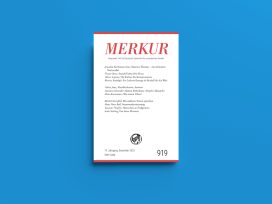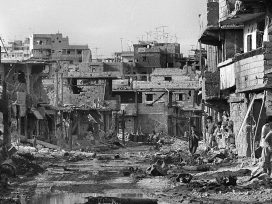The earthly ground
- Eurozine Review
2/2018
‘Esprit’ explores worlds of ecology; ‘Merkur’ talks class; ‘Dialogi’ looks at histories of feminism; ‘Belgrade Journal’ introduces voices from the Balkan route; ‘Il Mulino’ travels through a difficult but extremely beautiful country.
Esprit (France) 1–2/2018
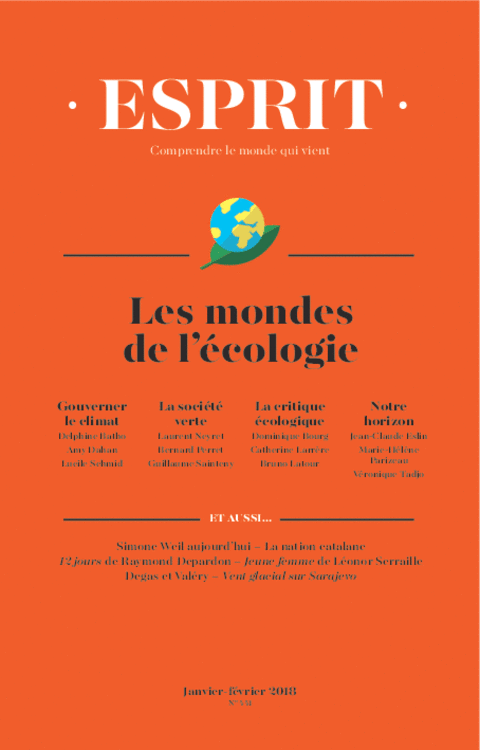
Scientists warn about how modes of production, consumption and trade threaten the environment. In return, citizens change their behaviour and seek alternative ways of life. Yet political ecology is undermined by internal divisions, doctrinal inconsistency and impotence. What is the reason for this under-achievement and can it be fixed?
Political ecology is the only agenda able to build a sustainable world, write the editors of Esprit in an issue on ‘worlds of ecology’. ‘There is no other home for humanity, which must think of itself as part of an interconnected network. Political ecology calls for a deepening of solidarity: between the global North and the global South, between the rich and the poor, between humans and non-humans.’
Terrestrial politics: Between post-human globalization and nationalistic withdrawal, the ecological question pushes us toward the earthly ground, argues Bruno Latour. Traditionally rejected by the Left as reactionary, ‘the question of belonging to a particular soil’ has suddenly become urgent.
Ecological action: While a ‘climatization of the world’ has taken place under the auspices of the UN, writes Amy Dahan, the mere ‘acknowledgment of climate-related risks is clearly insufficient’. Cross-domain political arenas are needed on issues of green finance, industrial policy and the development of Africa.
Also: Ivorian fiction writer Véronique Tadjo on how literature can allow the global North and the global South to become aware of their common destiny. And philosopher Catherine Larrère explains why political ecology, if it is to remain autonomous, must rely on civil movements.
More articles from Esprit in Eurozine; Esprit’s website
Merkur (Germany) 2/2018
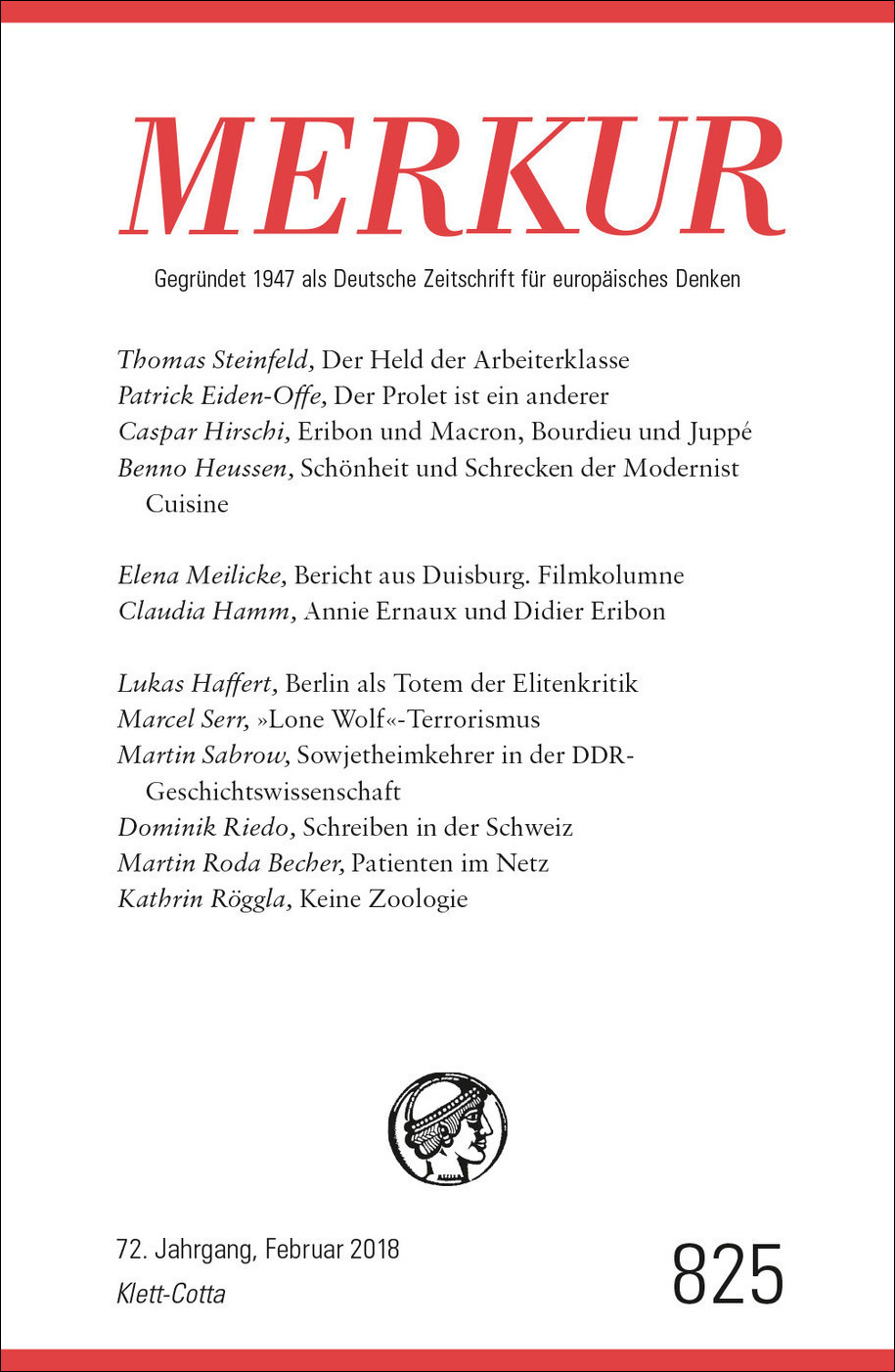
‘The hour of justice for the American worker has arrived’, announced Donald Trump after becoming US president. Such pronouncements – which are common throughout Europe too – are no longer the preserve of Marxists. On the contrary, writes Thomas Steinfeld, feuilleton editor at Süddeutsche Zeitung, in the ‘regressive modern’, the moralization of labour is primarily a conservative discourse.
‘The workers, with their bodies and their strength, stand for the prosperity of the community. More than any other professional group or social class, they must bear the brunt of the internationalization of the economy. That is why the – primarily rhetorical – roll-back of globalization is carried out in their name. On one hand, it aims at competitors from outside, who allegedly ruin the domestic economy with low wages, dubious standards and artificially low exchange rates. On the other hand, it is directed at the supposed, foreign beneficiaries within. According to this world view, the worker, as idol of rootedness and honesty, is the victim of a rotten elite, spoiled by corruption and urbanity.’
Class semantics: Historian Patrick Eiden-Offe draws parallels between today’s talk of the ‘white working-class’ and the ‘standardization’ and ‘purification’ of the working class in the 1840s. ‘Where earlier descriptions of the proletariat emphasized its heterogeneity, figures now became central that can be seen as the prototypes of the “working class heroes” and “socialist Übermenschen” of the propaganda novels, films and images of “socialist realism”. These figures struggled bitterly against the tyranny of their exploiters, but just as bitterly to be exploited solely and exclusively.’
Eiden-Offe proposes the term ‘proletarianization’ instead of ‘class’: ‘Perhaps unexpected reactions will suddenly appear: connections, parallels, opportunities for political collaboration and solidarity, which lie below the surface of scientific neutrality, awaiting activation.’
Also: Caspar Hirschi on why Didier Éribon’s critique of Macron is less controversial in France than abroad: Éribon’s mimicry of Pierre Bourdieu’s critique of Alain Juppé’s reforms of the 1990s guarantees both his intellectual reputation and political inconsequentiality.
More articles from Merkur in Eurozine; Merkur’s website
Dialogi (Slovenia) 11–12/2017
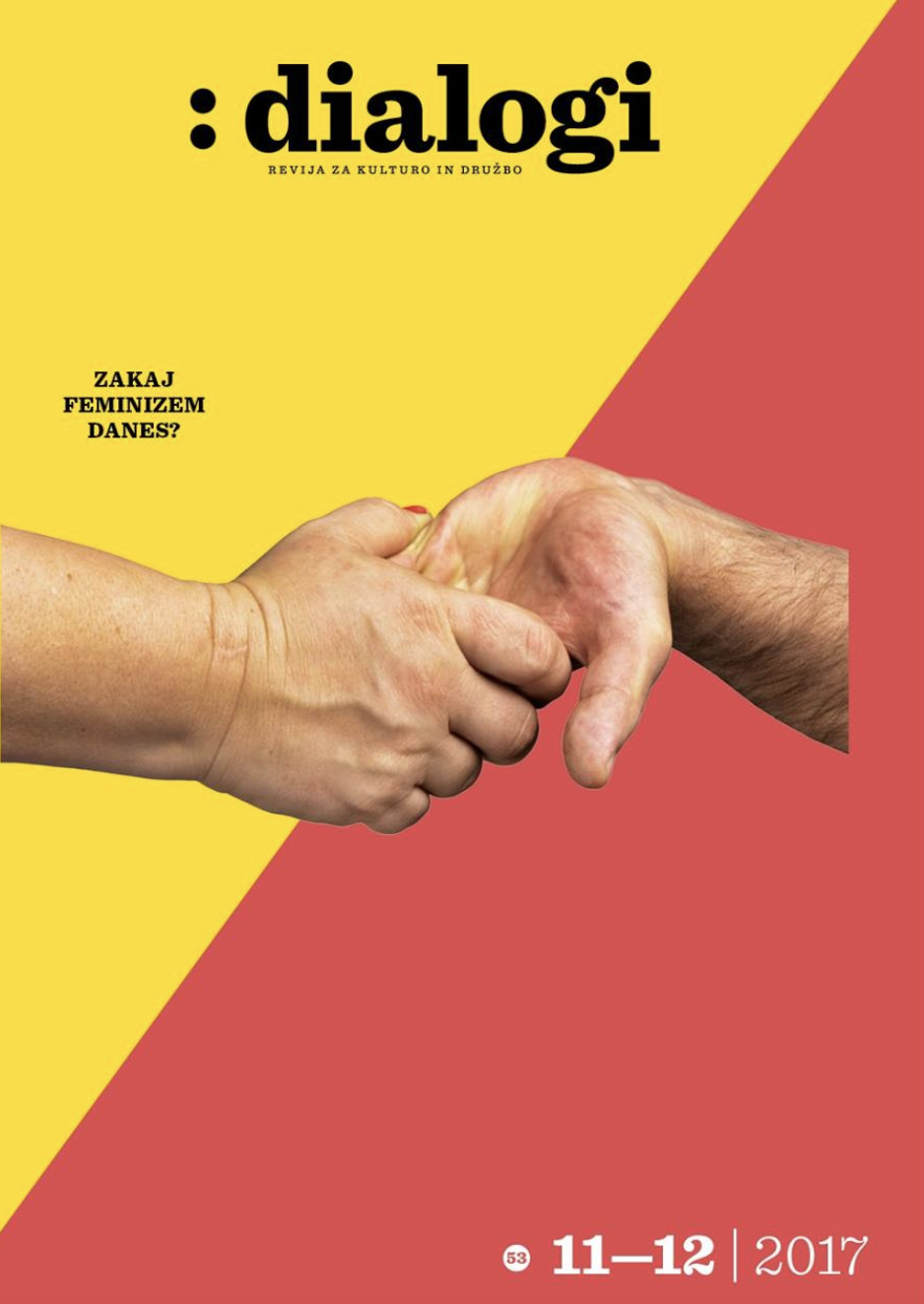
‘If feminism is today (again, still) necessary, then so too is a re-examination of its contemporary forms and relationship to the history of feminist struggles’ write Dialogi editors Katja Čičigoj and Jasmina Založnik. ‘The need for feminism’, they argue, ‘is emerging as a response to the neoliberal post-feminist consensus on the one hand, and neoconservative pressures on the other’.
Imagery: The photograph of the Catalan journalist Marina Ginestà ‘with a gun over her shoulder staring into the camera lens’ was an iconic image of the Spanish Civil War and a reference point for future revolutionaries, writes Klara Otorepec. But the photograph also highlights the ‘problematic effects of images of women in revolutionary movements’, such as the (sexual) fascination that strengthens gender stereotypes. The problem ‘may not only be in the patriarchal conception and interpretation of images’, she argues, but also in their ‘class character’: ‘images of exceptional individuals’ seem primarily aimed at the middle class.
Chronologies: The division of the history of feminism into four waves does not work for ‘feminism in non-western cultural settings and in the former socialist bloc’, argues Ida Hiršenfelder. ‘The problem of women’s equality in Yugoslavia was neither political nor legal; Yugoslav feminists were mainly concerned with economic backwardness, religious beliefs and how the burden of family work prevented their full participation in social and public life.’
Language: In gendered languages such as Slovene, the wrong gender is addressed in everyday verbal interactions to individuals who don’t identity within the categories of the binary gender system. They are developing alternative linguistic practices to ‘express their own identity and to overcome existing power relations’, write Branislava Vičar and Boris Kern. ‘Gender inclusive linguistic practices present a sociolinguistic manifestation of justice.’
More articles from Dialogi in Eurozine; Dialogi’s website
Belgrade Journal of Media and Communications (Serbia) 12/2017
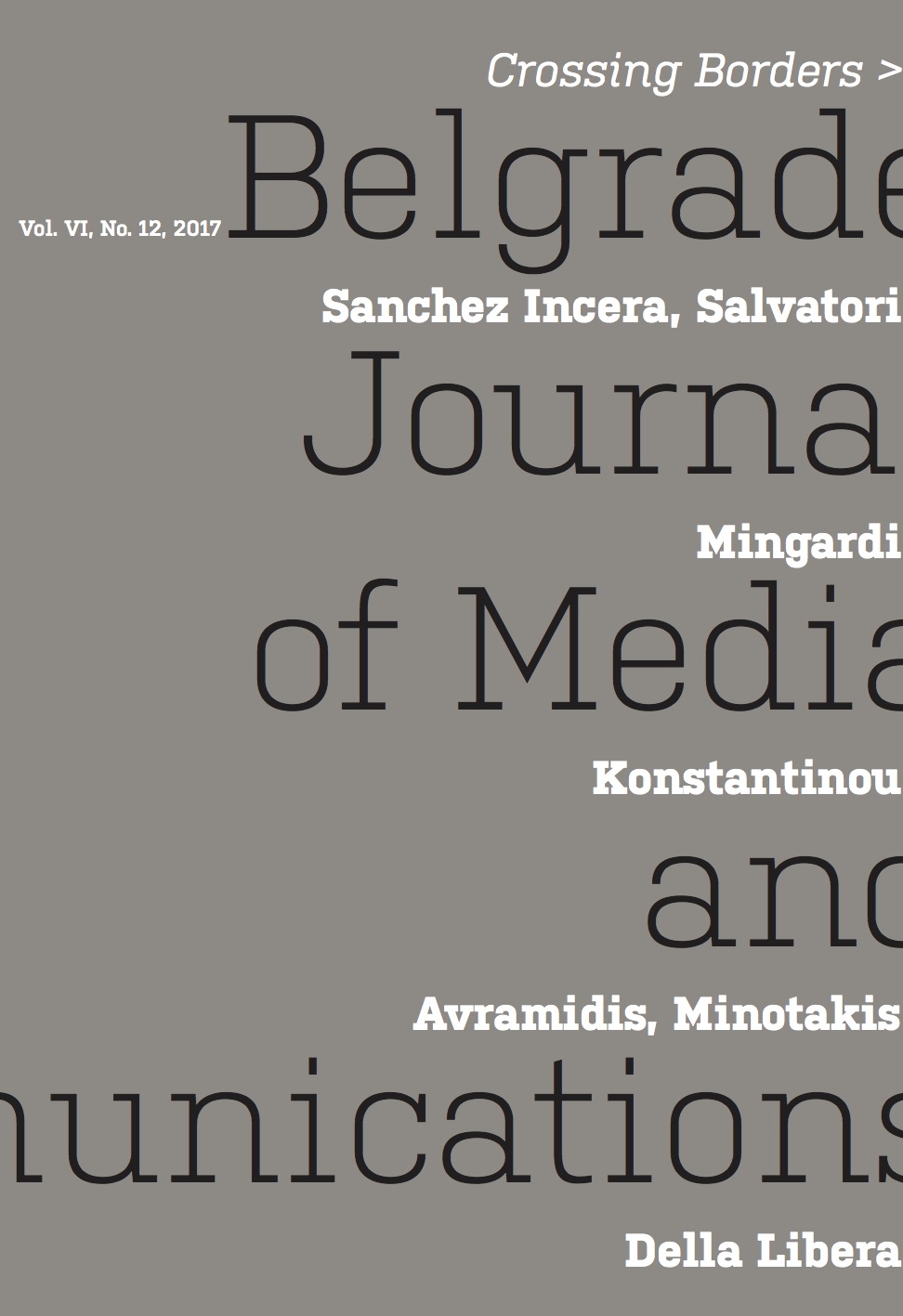
During and immediately after refugee crisis of 2015–2016, the conversation was monopolized by the destination countries, write Andrej Grubačić and Aleksandra Perišić, editors of the current issue of the Belgrade Journal of Media and Communications. The issue redresses this imbalance through introducing ‘voices from along the Balkan route’.
After all, write the editors, ‘The destruction of Yugoslavia and the hundreds of thousands of people who fled the Yugoslav wars was a formative moment in the definition of a new legal and administrative border-migration regime that emerged in the early 1990s.’
Politics of fear: In an interesting discussion of the security regime implemented by the Dublin Agreement, lawyers Laetitia Sanchez Incera and Maria Vittoria Salvatori make a number of pertinent criticisms. One: Dublin fails to distinguish between asylum seekers and illegal immigrants, as stipulated by the 1951 UN Convention for the Protection of Refugees. Two: restricting migration does not get to the root cause of the security problem, which is the exploitation of kinship ties for recruitment of would-be terrorists. Three: blanket bans on communities and nationalities have negative security consequences because they exacerbate resentment and distrust.
Also: Iossif Konstantinou on refugees’ use of social media; Christos Avramidis and Alexandros Minotakis on the infantilization of refugees by Greek public television; and Carlota Mingardi on gender discrimination and European colonial legacies.
More articles from Belgrade Journal in Eurozine; Belgrade Journal’s website
Il Mulino (Italy) 6/2017
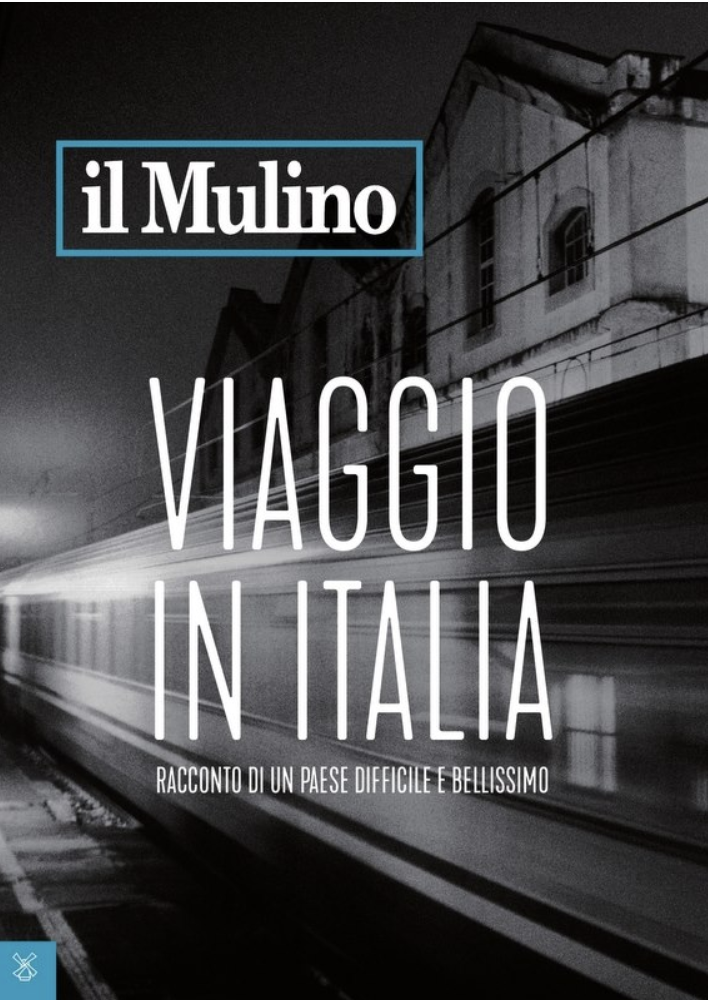
Bologna-based journal Il Mulino retraces the steps of the journalist Guido Piovene, whose book Journey Through Italy documented the country (region by region, city by city) sixty years ago. The introduction declares that Piovene’s observation: ‘Italy is always a confused country, in which nothing appears with its true face’ still holds true.
A huge network of collaborators have contributed sixty articles on the different cities and regions encountered along the route, responding to the question ‘Is Italy really a country adrift, destined inexorably for decline, despite small pockets here and there of excellence?’
Plural, difficult and very beautiful: Gianfranco Viesti describes the extreme contrasts to be found within Italy, and the difficulty of governing it: ‘It’s extraordinary how, at the beginning of the twenty-first century, the differences which characterized the places in central eastern Europe at the beginning of the twentieth century have re-emerged, as if two world wars and forty years of communism had been small blips in the long-term story’. Viesti observes that ‘there’s a strong risk of not finding new narratives for the present and the future and ending up prisoners of history’.
Naples: An article about Naples by Luciano Brancaccio focuses on its rapid population growth (now third in terms of population size after Rome and Milan), which despite obstacles such as structural limits and a ‘largely inefficient public administration’ is developing successfully: ‘a growing city with many positive realities’.
Matera: ‘In the middle of the last century,’ writes Mariavaleria Mininni, ‘the southern Italian town of Matera launched a project of urban reform … that would guide the project to modernize the south. A city of only 30,000 inhabitants attracted the attention of a whole world of intellectuals, artists and writers who found in this reality, apparently frozen in time, signs of anticipation of the future.’ Matera will be a European Capital of Culture in 2019.
More articles from il Mulino in Eurozine; il Mulino’s website

Published 7 February 2018
Original in English
First published by Eurozine
© Eurozine
PDF/PRINTNewsletter
Subscribe to know what’s worth thinking about.


